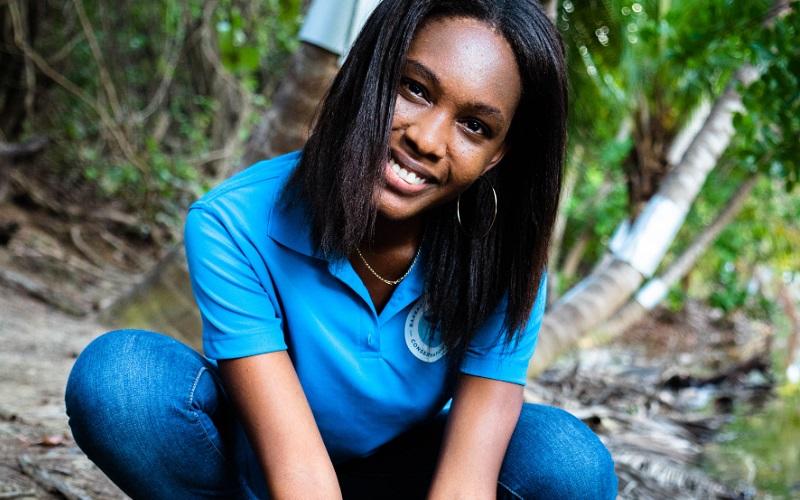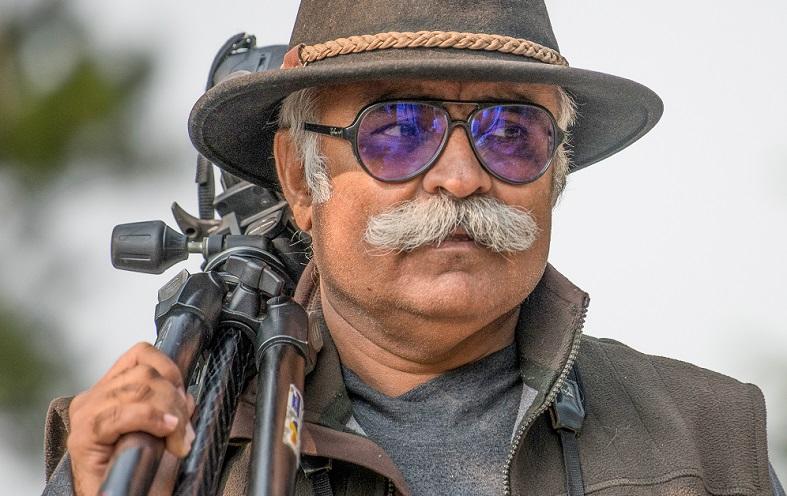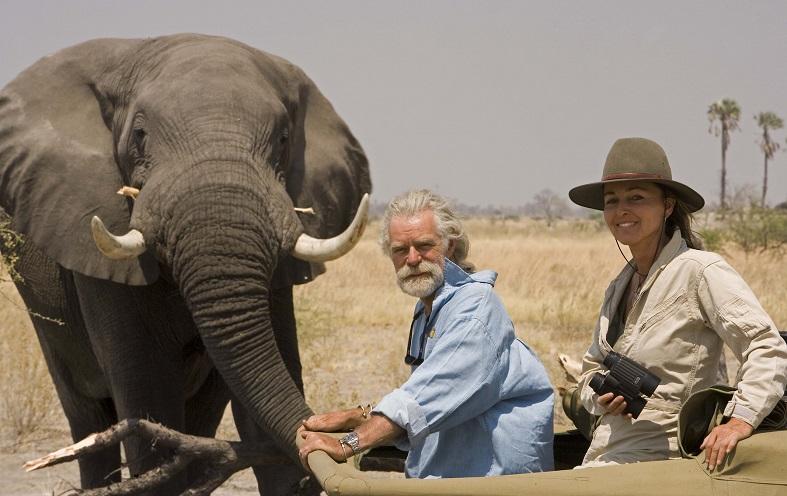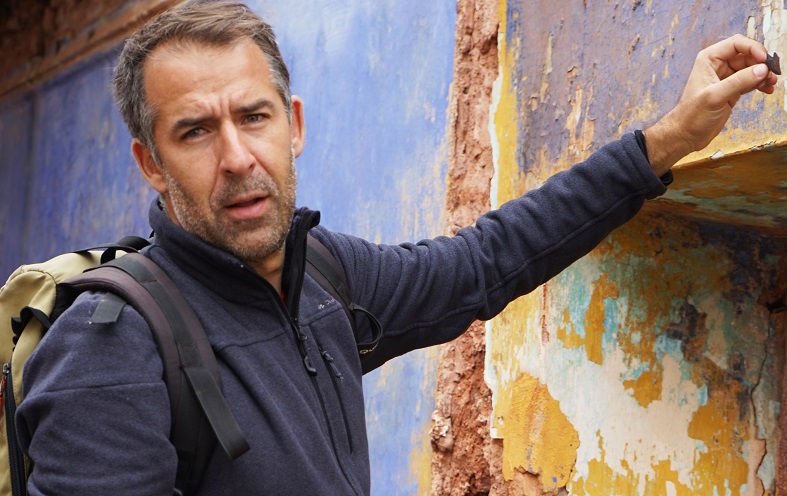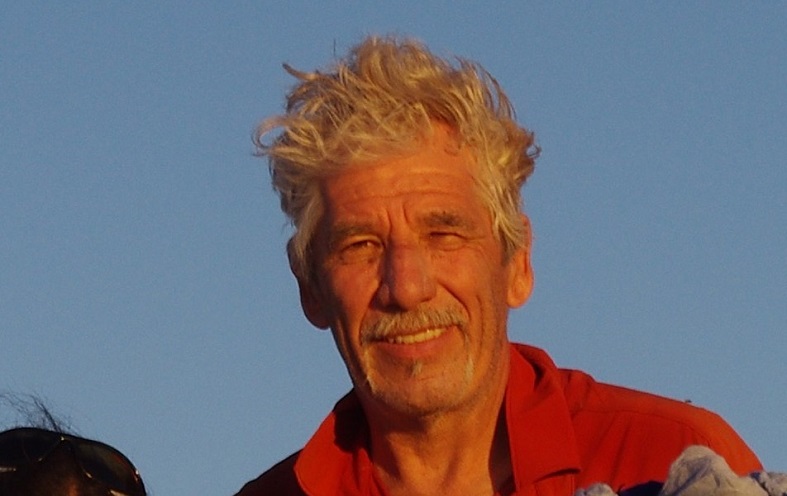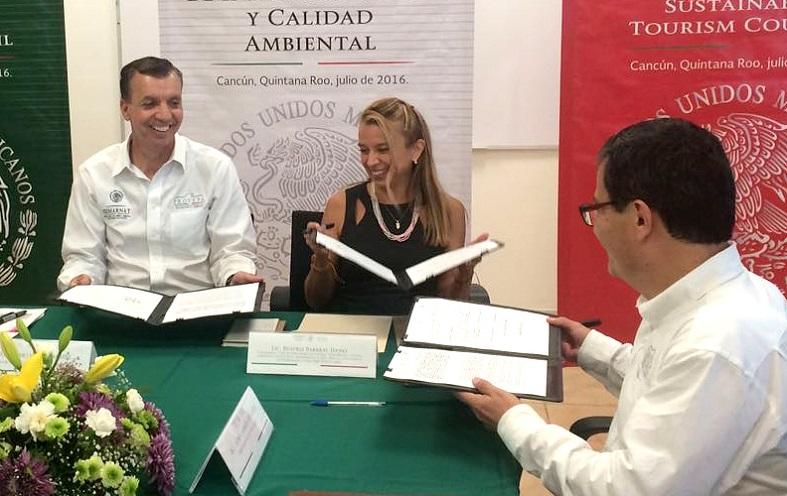
Madagascar has huge potential as a destination for responsible travellers on the lookout of unique wildlife experiences. It is also a country in dire need of sustainable economic development. Sonja Gottlebe, the owner of Boogie Pilgrim, is on a mission to help Madagascar become a sought-after, yet responsible destination.
Having already incorporated responsible tourism principles into her tour company’s operations three decades ago (when sustainability in tourism was still a very niche topic), Sonja takes travellers to the remotest parts of the island to explore the unique biodiversity and wildlife without leaving a negative footprint.
In our interview portrait, she shares how Madagascar is moving towards a sustainable form of tourism and how the coronavirus pandemic has impacted the country’s travel industry – and its ability to ensure wildlife conservation.
Sonja, what led you to dedicate your life to the development of sustainable tourism experiences in Madagascar?
I grew up in Madagascar with my parents. As my father is a botanist, I spent my childhood in nature and was taught that sustainability in life is essential. Ever since I started as a young hiking guide with the German Alpinist Association (DAV), our responsibility to interact with Malagasy people and fragile biodiversity was evident.
You started Boogie Pilgrim in 1989. How has your understanding of sustainability changed since you first got involved?
Over 30 years ago, those concepts didn’t exist in tourism. Later on, ecotourism was born, and many other definitions came up: green tourism, responsible tourism, pro-poor tourism, equitable tourism, etc.
Madagascar, which has a strong French colonial heritage, found its way to sustainable tourism development quite late. Once ecotourism started to be fashionable, operators jumped on the band wagon, often practicing “greenwashing”. It took another decade for the realization to sink in that sustainability wasn’t just a new marketing concept. Back in those days, I felt pretty lonely, and was sometimes called the “German eco-fanatic”.
But then things started to change, even on our island! At Boogie Pilgrim, I had to involve local communities from the beginning, especially with our three lodges in very remote regions. Local procurement and employment were the only way to make our activities sustainable in all ways.
Apart from the economic gains of locals who are involved with Boogie Pilgrim, what are some of the social benefits to these communities?
Our lodges create jobs for the neighbourhood. We did lots of training to get them to where they are now – language skills, food and beverage training, hospitality management, guide training, boat skippers, maintenance, etc. In each location, we raised funds to build schools for their community and support medicare. A Malagasy family is about ten people on average, including three generations living under the same roof. Our lodges have made a direct impact on about 300 locals from the Bush House and Tsara Camp.
Our tour operator business isn’t as directly involved with the locals as the lodges, but still – we are Fair Trade Tourism approved. Most of our itineraries support projects by visiting and staying in community-based accommodation by small Malagasy suppliers wherever possible.
The current coronavirus pandemic has put travel upside down. Apart from the significant challenges it poses, do you think it also presents us with opportunities, for instance regarding tourism sustainability in Madagascar?
The sustainability of tourism in Madagascar is endangered by the coronavirus crisis. As our sector is not a government priority, we do not get any substantial support to survive. Many companies will close before the end of the year. The public sector is using definitions like ‘sustainable tourism’ all over, often without knowing what it means! But they noticed that international donors and NGOs like to hear it, to give money away.
But still, the only way to develop tourism in a place like Madagascar is by respecting fair trade rules, equity, sustainable principles, and environmental protection.
There is a strong interest now in enjoying open spaces, following months of isolation at home during this pandemic. What trends in travel are we going to see in the coming months and years?
Madagascar has the ideal profile, naturally. Our destination is known for huge empty spaces, great national parks, and biodiversity. Due to our location and destination characteristics, we have been protected from overtourism since the start.
Madagascar is a big playground for adventure tourism and nature lovers. Before the crisis, we hardly reached 300,000 tourists in 2019 – a small amount considering that we are the fourth biggest island in the world!
Reducing poverty through conservation and tourism: What are the common challenges locals face in terms of benefiting from revenue generated through tourism, in Madagascar?
Tourism is the most fragile economic sector in a country like Madagascar. I had to deal with other local crises before COVID: political instability, sanitary crisis (cholera, plague, dengue). Tourism is the first to get hit every time because of media coverage leading to the foreign community stopping to travel almost immediately.
Local communities in Madagascar which depend too much on tourism are experiencing existential difficulties right now. Tourism employees cannot expect any help from the government, which means that a crisis like the coronavirus pandemic can have a severe impact on their lives.
Those who are independent workers, like tour guides, have to make their living during a fairly short season, facing a crisis of some sorts almost every five years.
Which lessons or key insights from Boogie Pilgrim might serve other tourism businesses or destinations around the world?
After 30 years of experience in tourism in Madagascar, we decided to launch Boogie’s Solidarity. It’s a Malagasy nonprofit organization created by my husband, Patrice Raoull and myself as CEO and project manager at Boogie Pilgrim Group – both of us long-time advocates of sustainable tourism and experienced with humanitarian work.
Through the association, we aim to improve the precarious social, health, and environmental situations of the communities, primarily in the vicinity of our lodges. We noticed that developing sustainable tourism for real needs a separate entity from a company. It was too expensive and complicated to create a foundation, so this non-profit association will do the job.
The idea is also to be independent of the company, in case tourism faces any difficulties. Boogie’s Solidarity can go its own way, find donors for projects, and be operational even at times with low income through tourism.
Thank you, Sonja.
Connect with Sonja Gottlebe on LinkedIn. Follow Boogie Pilgrim on Facebook or Twitter.
Enjoyed our interview with Sonja Gottlebe, on sustainable tourism in Madagascar and how she is supporting the sustainable development of communities on the island through her tourism business? Thanks for sharing!

